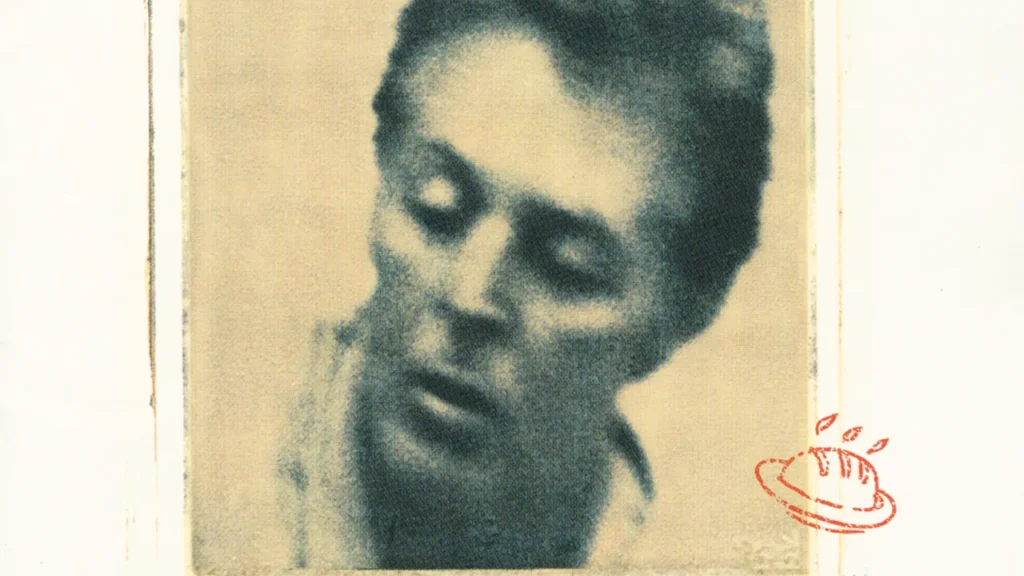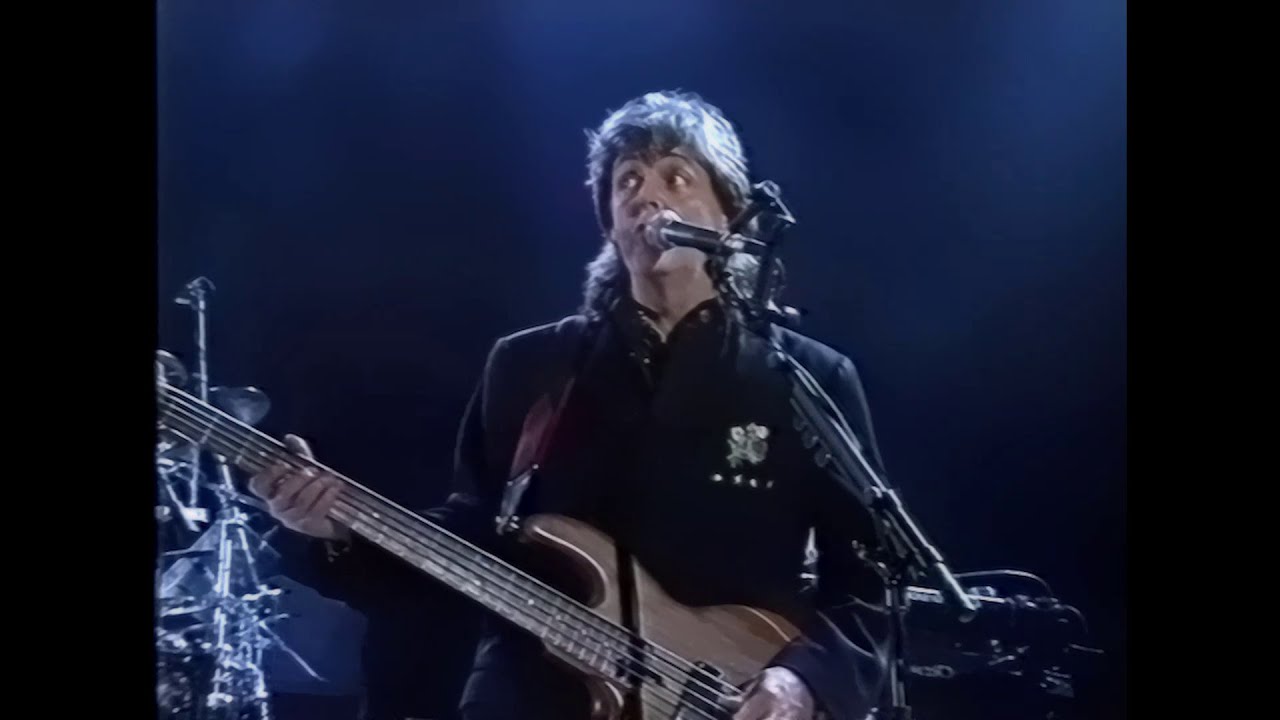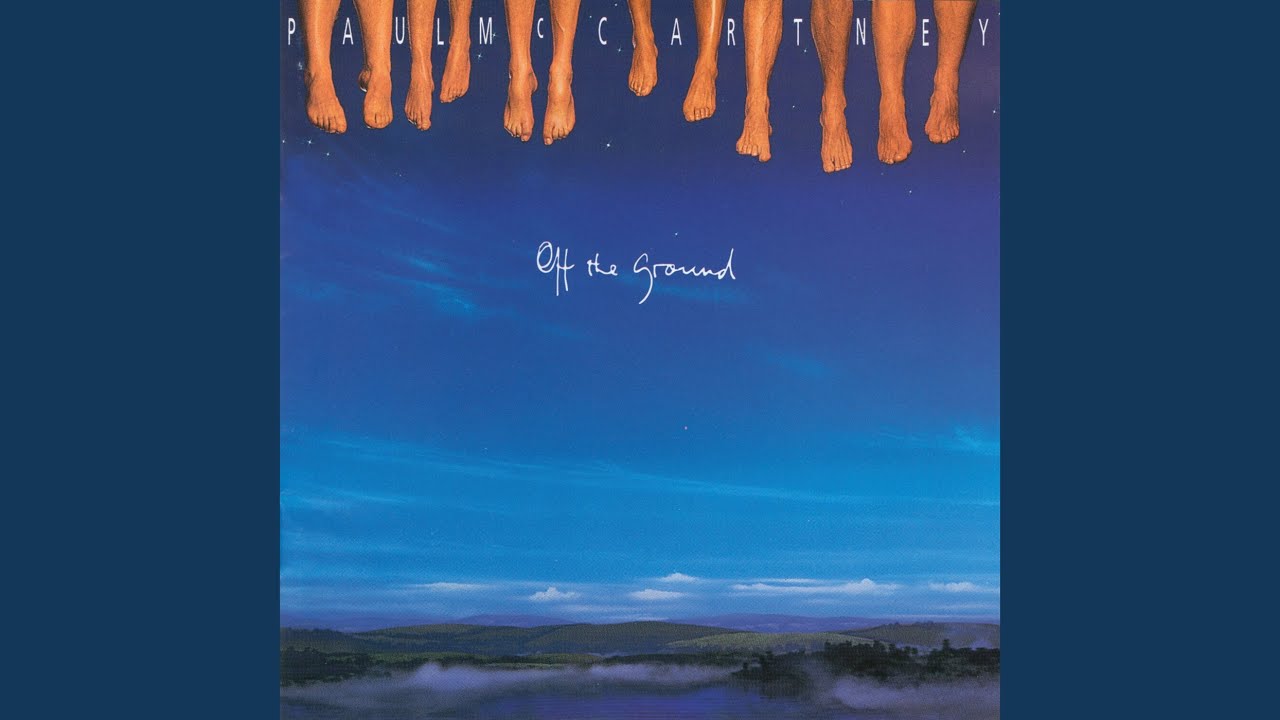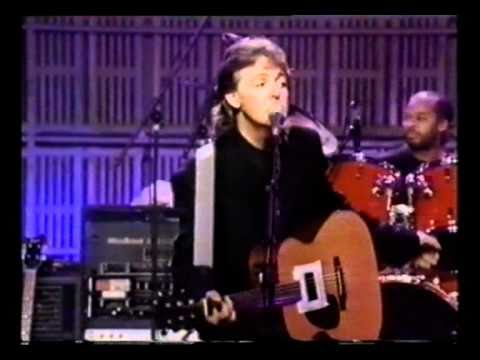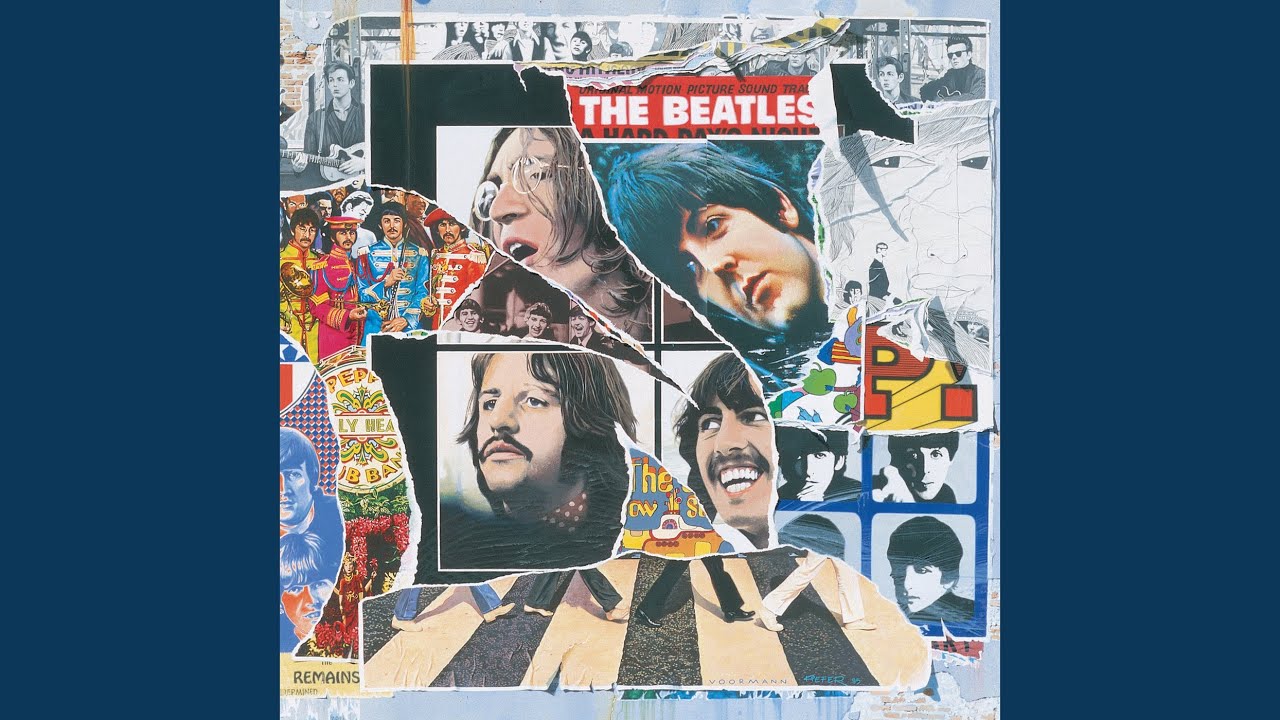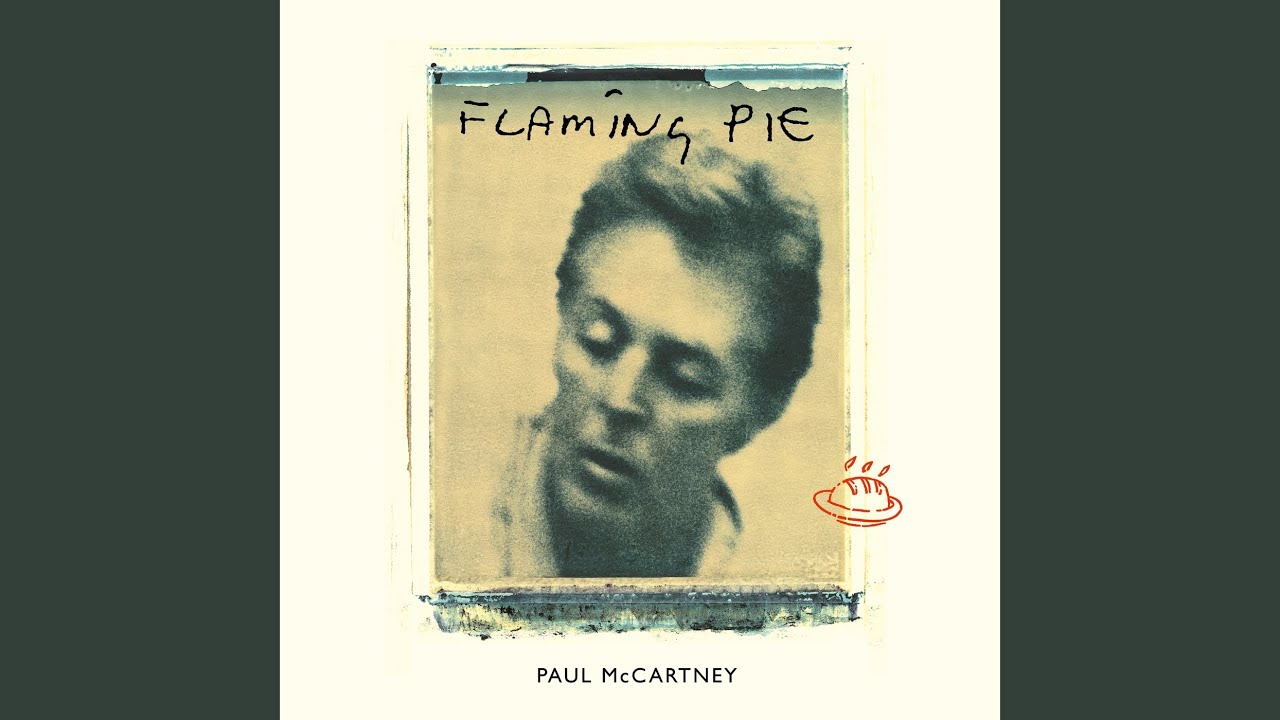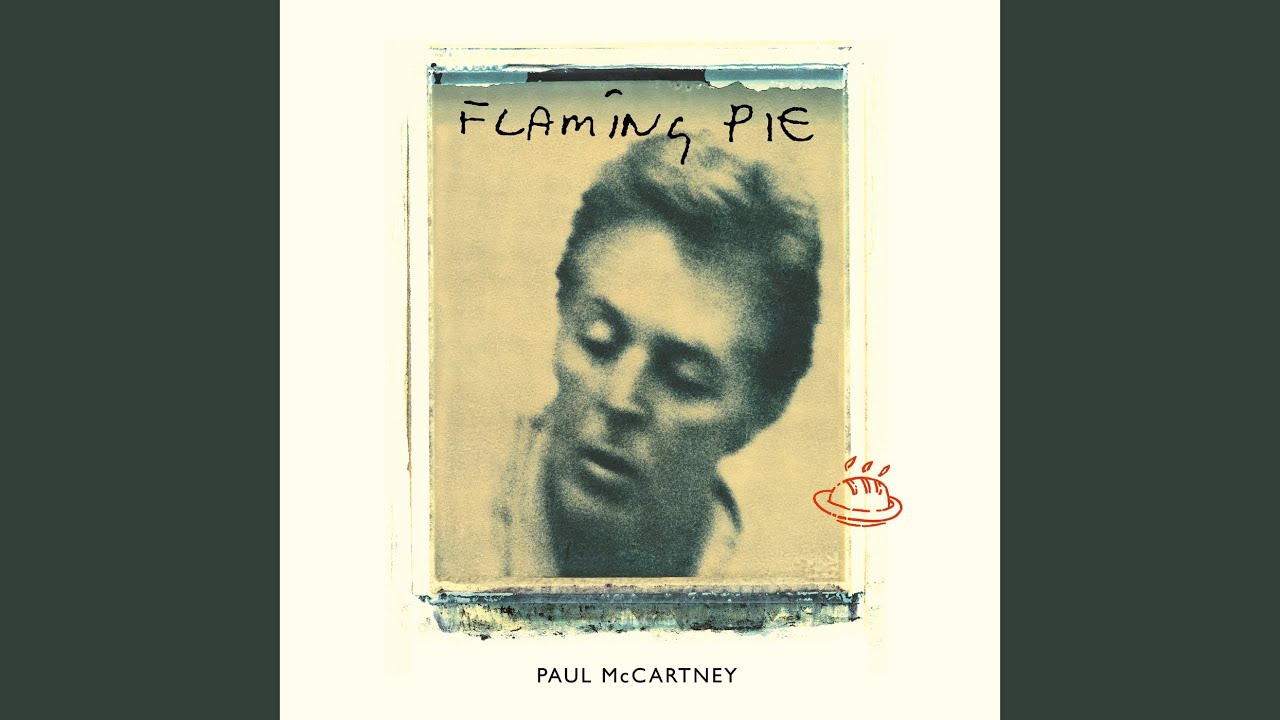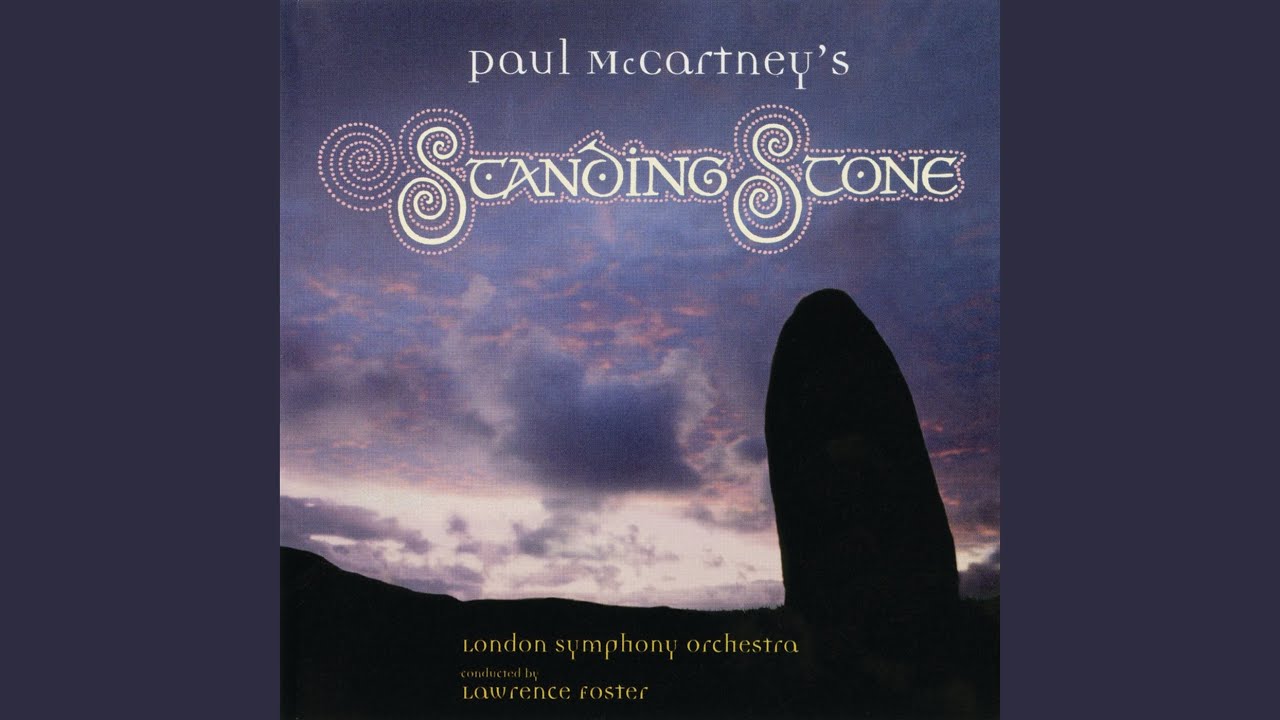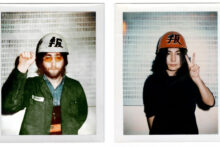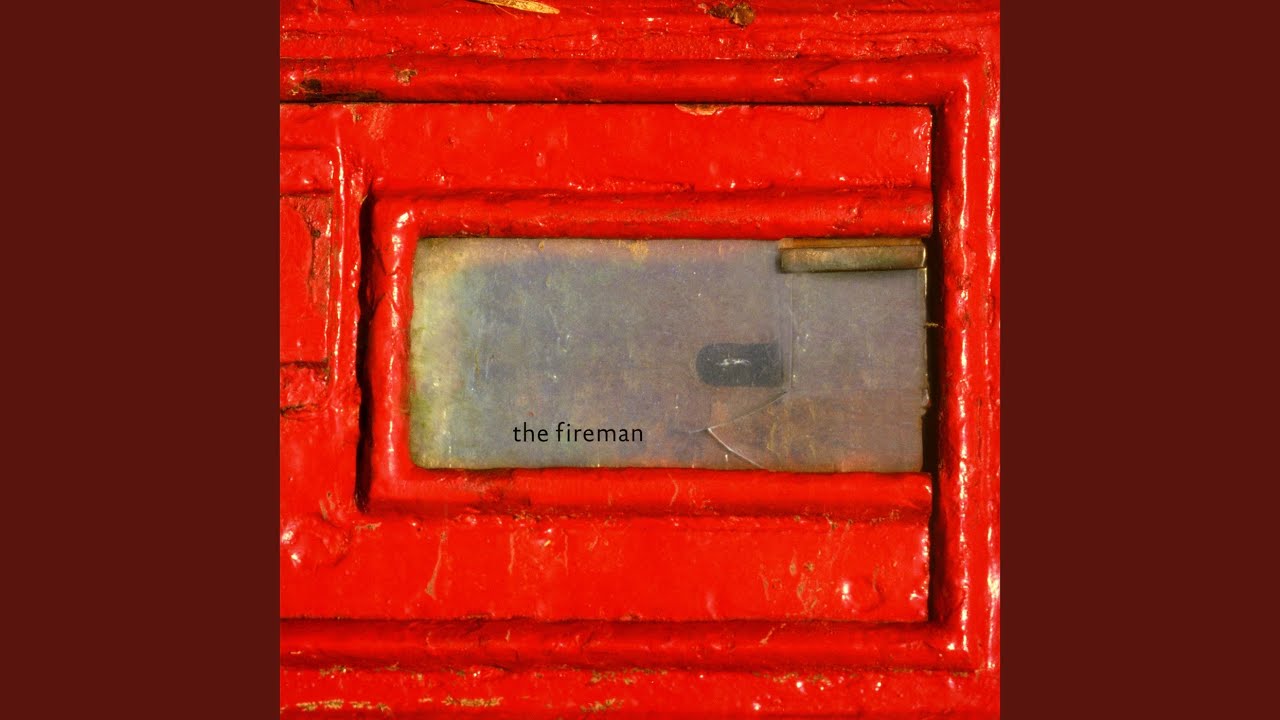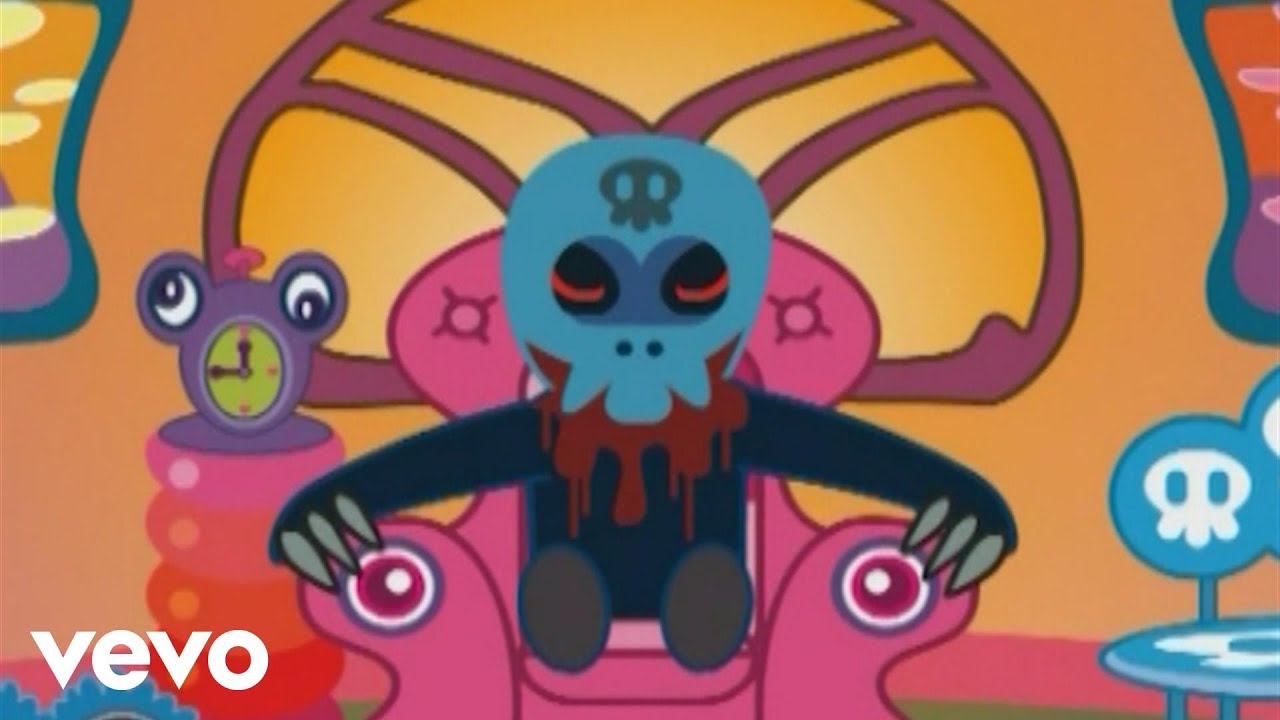When I told people I was working on a book about Paul McCartney in the 1990s, many would react in a similar way. Some folk would ask, for instance, “Who’s Paul McCartney?” Cue a quick TED Talk on my part to fill the gaps. (Ex-boyfriend of Jane Asher. Member of one of the greatest bands of all time. Before Wings, also played in The Beatles…) Seriously though, on hearing my mooted topic, people would often stare at me for a few seconds, processing this information, and then go, “Okay. Erm. So… What did he do in the 90s?” Concerned that so few people had any interest in this period of Sir Paul’s career that I wouldn’t sell a single book about it, I was also heartened to know there was a gap in the public’s knowledge, crying out to be filled.
The idea came when I was writing my last book, Electric Wizards, which I opened by arguing that Paul McCartney, as the principal force behind The Beatles’ ‘Helter Skelter’, had basically invented all heavy music, from noise rock to drone metal and beyond. Writing in The Wire, the great Neil Kulkarni regarded this as “massively problematic” in an otherwise glowing review. Beyond “The White Album” (The Beatles), I’d been thinking about McCartney’s longer career and had become irritated, if that’s the right word, by the way most of his biographies worked. Usually, three quarters of these tomes will focus on the 60s. Then, at the end, the author rushes through the millions of things McCartney did afterwards.
This makes sense, given the confused staring I mentioned earlier. In another way, it doesn’t. The impact of The Beatles’ activities notwithstanding, everybody’s already heard those well-worn anecdotes about the melody from ‘Yesterday’ appearing in a dream and the moment the Fab Four conquered America. There is much more to McCartney’s story thereafter. As demonstrated by Tom Doyle’s book Man On The Run: Paul McCartney In The 1970s, it can be fruitful to home in on a period that hasn’t been explored so frequently or intensely.
McCartney’s 90s era has drawn even less scrutiny than the time covered by Doyle. And the more I thought about it, the more I managed to persuade myself that the 1990s was THE MOST IMPORTANT DECADE IN PAUL MCCARTNEY’S CAREER AFTER THE 1960S. The book is, partly, an attempt to convince its readers of this. So, when those baffled-faced friends of mine asked what McCartney did in this decade, I would often reply with a wild-eyed “WHAT DIDN’T HE DO?!” I’d follow this with a string of examples, some of which appear below. Plus… sausages! Vegetarian ones, that is. Because the 1990s was also the time when Paul’s beloved wife, Linda, established her meat-free meals empire, surprising everyone, her husband included, with its enormous success. There’s a whole chapter on Linda, by the way. It’s the least she deserves.
Not convinced? Try the book out yourself and see what you reckon. For the time being, here’s an introduction to some of Macca’s 90s highpoints.
‘Figure Of Eight’ from Tripping The Live Fantastic (1990)
The 80s were not particularly kind to Paul McCartney. Like other rockers of his generation, he was derided as an antiquity and could look a bit lost when trying (or not) to keep up with the times. McCartney’s flop film, Give My Regards To Broad Street, prompted schadenfreude. Smash Hits nicknamed him “Fab Macca Wacky Thumbs Aloft”. The title song from Spies Like Us lacked substance. Its B-side, a previously unreleased Wings number from a decade earlier, suggested a dry-running well.
McCartney’s 1989 album, Flowers In The Dirt, was hailed by some as a return to form. It was more a step in the right direction. It suffers, as McCartney later admitted, from too many producers spoiling the broth. Its sales were boosted by McCartney’s return to touring after a decade away; a more significant factor in his revival as a creative and commercial force. He would have been wise to tour first, actually, so he could have road-tested the new songs, if brave enough to confront his audiences with such unfamiliar material. The difference can be heard when comparing the studio versions to those Flowers In The Dirt tracks that appear on the Tripping The Live Fantastic album of 1990. There’s a touch more oomph and a lot more life in them.
‘Looking For Changes’ from Off The Ground (1993)
Rejecting the loads-of-producers-behind-tons-of-computers approach, McCartney’s first studio album of the 90s was recorded live-in-the-studio with his touring band. They tried to do this in as few takes as possible. Although the results were hardly rough enough to suit the Amphetamine Reptile roster, they showed McCartney was abandoning some of his prior preciousness and proneness to overthink what the public wanted.
A continuous theme of McCartney in the 90s was that he seemed to care much less in certain respects and, at the same time, care more in others. With Off The Ground, the music was recorded quickly, like The Beatles did in their early days. However, McCartney’s approach to his latest set of lyrics was less easy-going, no doubt owing to past criticisms of his work as superficial, banal or nonsensical. He asked his friend Adrian Mitchell to vet the works to help make them “poet-proof”. Maybe Mitchell’s own political writing rubbed off on the musician. On ‘Looking For Changes’, an anti-vivisection anthem, McCartney seems uncharacteristically angry and even uses a swear word. Not so fab and thumbs-up now!
‘Big Boys Bickering’, edited out of the MTV Up Close broadcast (1993)
On the B-side ‘Big Boys Bickering’, McCartney even dropped a few F-bombs. This was a protest song for the environmental movement. While petty and macho politicians were busy squabbling among themselves, the state of the planet was in fierce decline. (Sound familiar?) McCartney was particularly irked by those world leaders who’d paid lip service to environmental concerns by attending the 1992 Earth Summit in Rio de Janeiro and yet subsequently ignored all the agreements. “If I’m talking about the ozone layer and the big hole in it, a 50-mile-wide hole, I don’t think, ‘Well, that’s a flipping hole,’” McCartney explained. “I think that’s a fucking big hole! And it’s gotta be closed, y’know.”
The Beatles – ‘Helter Skelter’ from Anthology 3 (1996)
This wasn’t by design but the Anthology documentary series and three accompanying compilations coincided with Britpop, whose participants, such as Oasis, hid none of their debts to the Fab Four. All this gave The Beatles’ brand an enormous boost by introducing younger listeners to the group while reminding others why they’d loved them in the first place. On Anthology 3, the slow and menacing twelve-minute version of McCartney’s ‘Helter Skelter’ fades out at four and a half minutes (unfortunately). Even this edited form gives some impression of how the blues-influenced beast points towards the future philosophies of krautrock, post punk and doom metal: liberation through repetition. We had to wait until the 50th anniversary edition of The Beatles, in 2018, to hear it in full. The near-mythical 27-minute version has never been released. Anthology 3 was advertised as “The final chapter in the story of the greatest band that ever was…” What nonsense that turned out to be. It unleashed an infinity of Beatles products from computer game tie-ins, through Cirque du Soleil mashup remixes, to Martin Scorsese’s Yellow Submarine AI Avatar Experience Presented By Peter Jackson.
‘If You Wanna’ from Flaming Pie (1997)
Flaming Pie proved to be one of McCartney’s most critically acclaimed albums from any decade. It was assumed that revisiting the old days when working on the Anthology had rekindled his greatness. The reality was less simple. This solo album could also be viewed as an exercise in maintaining the momentum McCartney had been building before the interruption provided by the Anthology and its promotional commitments. A case in point, ‘If You Wanna’ was written back in May 1993 during the New World Tour, when McCartney was promoting Off The Ground. It has a touch of that prior album’s shuffling, live feel, even though a full band was not involved this time. McCartney had Prince in mind when he wrote it in Minneapolis, home town of the dirty-minded musician with the androgynous falsetto You wouldn’t necessarily gauge that from listening to it, as it’s no riot of purple sex-funk. ‘If You Wanna’ is more in the alt-country vein. It’s a love song that uses a road trip as a metaphor for courtship and commitment, with euphemisms thrown in for the resultant backseat activities. That last detail might be why Chris Ingham of Mojo considered the song to be “slightly sinister”, which seems a little prudish of him.
‘Somedays’ from Flaming Pie (1997)
It did no harm, at this point, that the Britpop bubble had burst and McCartney’s material was better than that being offered by the feeble background-friendly ballads of the emerging New Acoustic Movement. On that note, Flaming Pie’s gentler moments tend to be its most spellbinding. ‘Somedays’ is a melancholic number, delicately orchestrated by George Martin, with a lyric that rejects any interest in football. (A dig at replica-kit-wearing Britpop thugs, perhaps?) Similarly elegant is ‘Calico Skies’. Sometimes compared to The Beatles’ ‘Blackbird’, it shifts from a direct love song into something more political and pacifistic in its third and final verse. Those who prefer to hear McCartney rocking out loosely and letting rip with his vocal cords might be more into Flaming Pie’s jam-derived ‘Really Love You’. Ringo Starr, who smashed drums on the track, was surprised to receive a co-writing credit. “You know, we usually have dinner and send each other flowers and that’s it,” he noted.
‘Cell Growth’ from Paul McCartney’s Standing Stone (1997)
Among McCartney’s many fascinating 90s aspects is his plethora of extracurricular activities. His forays into classical composition were more commercially than critically successful. There was something slyly pugnacious about them, nevertheless. For instance, the debuting of Paul McCartney’s Liverpool Oratorio at Liverpool Cathedral. This was the same building where, as an auditioning schoolboy, McCartney had been denied a place in its choir. Note, too, the loaded title of 1999’s Working Classical. I would argue that, like his wife’s skills at the keyboards and tambourine, McCartney got better in this field. Standing Stone and Working Classical are more satisfying experiences than Liverpool Oratorio with its exhaustive length and semi-autobiographical libretto. (But then I’m a rock person at heart, so what do I know?)
The Fireman – Rushes (1998)
Read between the lines of his interviews and they suggest McCartney found greater fulfilment in a different sideline: The Fireman, an ambient-techno project with Martin “Youth” Glover. This, too, had roots in Off The Ground. Glover was initially hired to remix some tunes from that record for 12-inch singles. McCartney enjoyed Youth’s experiments so much they soon spiralled into collaboration, resulting in two 90s albums, Strawberries Oceans Ships Forest and Rushes, with another follow-up in 2008. Unlike The Fireman’s debut, on Rushes the duo knew they were working on an album together from the outset. The record is a compelling and constantly shapeshifting journey of sound, threatening to hatch into rock (or post rock?) form in places, although mostly basking in its The Orb-like ambience. It is also, in part, a tribute, and the opposite of a morbid one, to Linda McCartney who was terminally ill when the recording took place. Of the hundreds of records he’s worked on, Youth says he is proudest of this one.
Super Furry Animals – ‘Receptacle For The Respectable’ from Rings Around The World (2001)
The only Britpop-era band that managed to persuade Paul McCartney to guest on one of their original songs was Cardiff’s Super Furry Animals. While they too drew on pop’s rich history, these psychedelic Welshmen did so in a far more diverse, progressive, arty and sonically chaotic way than the majority of their contemporaries. On ‘Receptacle For the Respectable’ from Super Furry Animals’ fifth album, McCartney was credited with “celery and carrot” accompaniment. This could be seen as a nostalgic activity itself, albeit an unusual one, for it was a reference to The Beach Boys’ 1967 song ‘Vegetables’, on which McCartney was rumoured to have contributed some percussive noises by chomping on celery and/or carrots. The events connect two eras when McCartney was at his most experimental. Just picture McCartney recording his, shall we say, fresh vegetable parts for the Super Furries, on whichever day he did this in the early half of the year 2000. It’s easy to imagine him crunching away while looking back over the decade that had just finished and marvelling at what an adventurous ten years it had been.
Off The Ground: Paul McCartney In The 1990s is published by Reaktion Books

